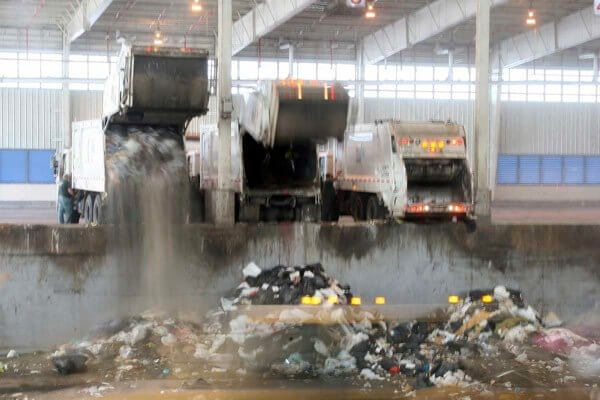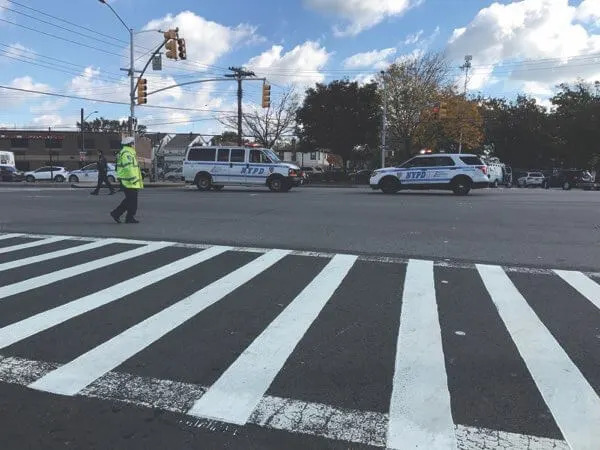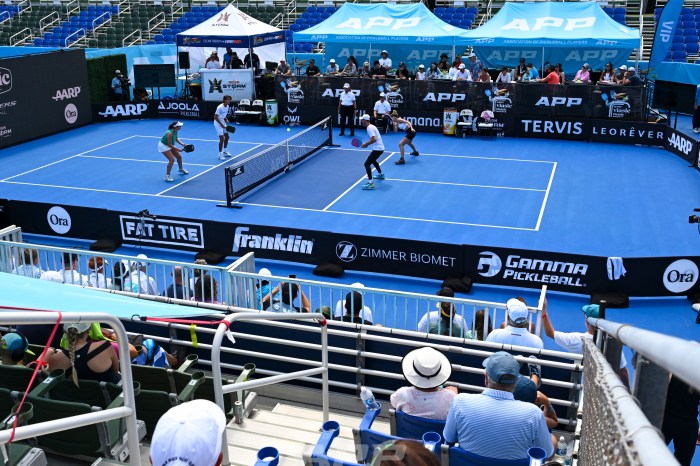By Naeisha Rose
Community leaders in Queens and environmentalists were shocked last month when Councilman I. Daneek Miller (D-St. Albans) chose not to support Intro 495-C, therefore killing the waste equity bill he co-sponsored in 2014. The bill could have helped to reduce the garbage stations in low-income neighborhoods in southeast Queens, north Brooklyn and the South Bronx.
The purpose of the bill, which was rooted in the 2006 Solid Waste Management Plan, was to help southeast Queens and other communities overburdened with 75 percent of New York City’s trash with caps on the number of refuse sent to them, according to the Department of Sanitation. The bill would have cut traffic and pollution and improved air quality while commercial Marine Transfer Stations were created.
The city’s SWMP would have switched garbage transfer from long-haul trucking to marine and rail transfer, according to www.waste
Waste
Rev. Andrew Wilkes of the Greater Allen A.M.E. Cathedral in Jamaica was displeased by Miller’s decision.
“We are troubled that Council member Miller went from championing waste equity at our Toxic Tour and Pray-In last February to walking away from Intro 495-C in a backroom discussion,” Wilkes said.
Over 11 months ago Miller, Wilkes, residents and sanitation workers of the Royal Waste dump on 173rd Street and Liberty Ave., toured the facility that is directly near a park and residential homes.
In February 2017, the company was accused of labor abuses at the tour, and according to the NYPD, one employee and two subcontractors died at the facility in 2009.
Royal Waste was not able to be reached for comment.
“The issues which prompted the Toxic Tour and Pray-In — namely, environmental injustice and demand for safe, fair working conditions — remain, and the community suffers unnecessarily when generally reliable leadership fails to exercise leadership on such a well-known grievance,” Wilkes said.
Miller, after reviewing the bill that underwent several revisions, thought the final version did not address all the issues concerning the overloaded communities and could create more problems.
“Any legislation that is designed with the intention of addressing specific concerns within a community requires great care,” Miller said. “I came to recognize the bill’s broad approach would not have necessarily resolved each of these issues for our community and had the potential to make a number of them even worse.”
Labor activists believe some of the sanitation workers who live in the neighborhoods where the facilities are located could end up losing their union paying jobs if the caps went into effect immediately, especially since the zone system that Mayor Bill de Blasio would like to create won’t be finished until 2020.
The National Waste & Recycling Association, a trade group representing private-sector waste companies, sanitation workers earn $40,000 to 60,0000 a year with benefits.
Based on statistics used from the city’s Independent Budget Office, the trips to a Marine Transfer Station could increase disposal costs from city funds, according to the trade association.
The bill already went from having 26 sponsors in 2016 to having 23 when it was time for a vote last week, meaning it was still three short of a majority vote in the 51-member City Council, long before Miller withdrew.
Miller has not abandoned his support for waste equity, but said he wants to go even further with the bill by improving safety standards and wages for sanitation workers.
“I threw my support behind Intro 495-C four years ago because I recognized the ill-effects of air pollution, fumes, truck traffic and noise from commercial waste transport in southeast Queens were outstanding issues affecting residents for generations,” Miller said. “I decided it would be better to work anew with my colleagues to achieve Waste Equity legislation that is not only sustainable and environmentally sensible for southeast Queens, as well as the City of New York, but also compels the industry to improve its safety standards and wage compensation.”
New York Lawyers for Public Interest, an organization that focuses on health justice, was still disappointed in Miller’s last-minute decision despite his reasoning. Had the bill gone through, Queens would have seen 33 percent less garbage coming to the borough, according to NYLPI.
Campaign finance records also showed that Miller received six contributions of $2,500 total from Royal Waste Services’ employees and family members on Sept. 19.
A 2015 sustainability report by the group Transform Don’t Trash NYC, an organization that wants to transform the waste industry, showed Queens received 691,000 tons of garbage.
“It’s shameful that residents of overburdened neighborhoods will continue to live with the dangers and toxic air pollution of excessive truck traffic when this bill could have provided some relief,” said NYLPI Executive Director McGregor Smyth.
Reach reporter Naeisha Rose by e-mail at nrose






























